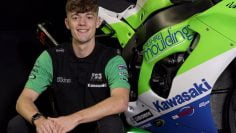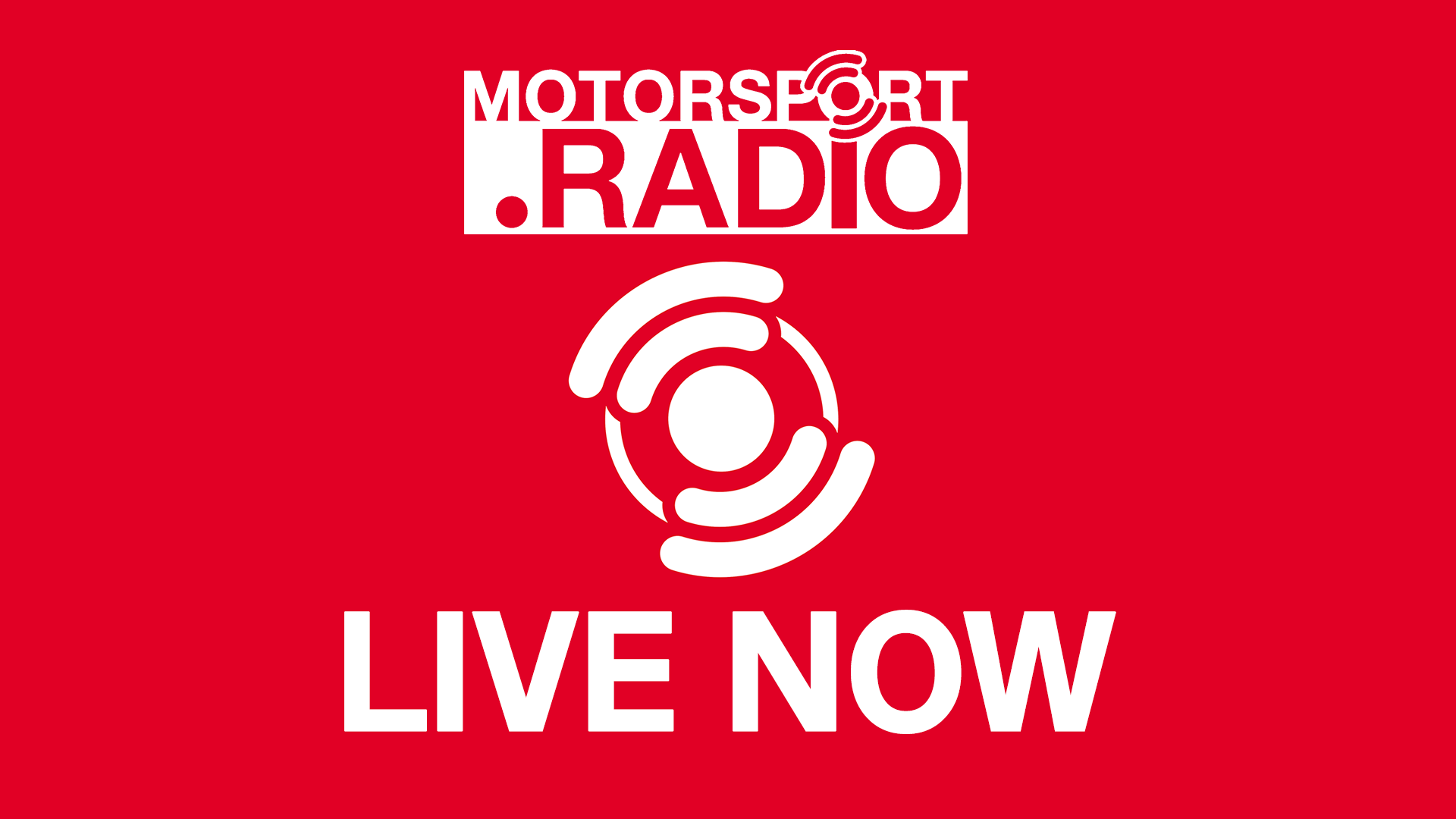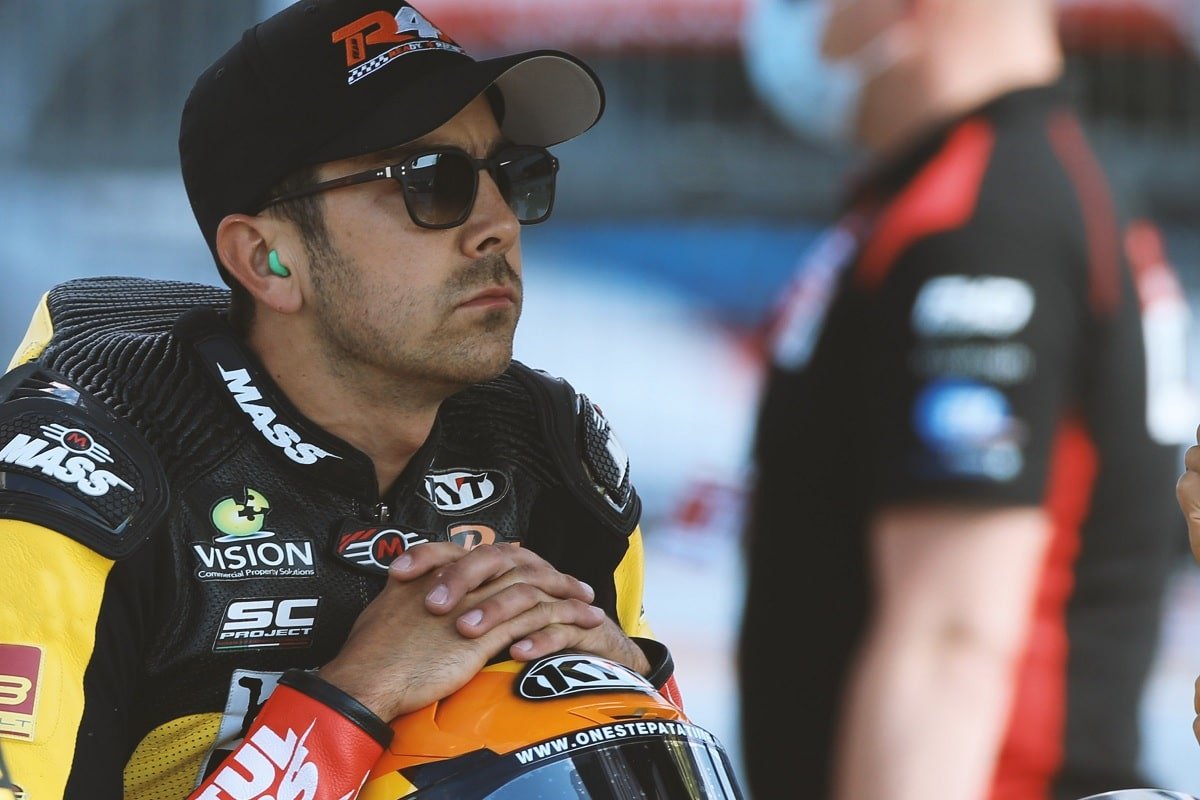
“The situation is tough right now” Gino Rea on the current state of motorcycle racing
World championship racing is seeing less and less British riders making it out onto the Grand Prix stage. A man who’s ventured into the Grand Prix scene himself, running his own team out the back of a Mercedes Sprinter Van, Gino Rea highlights that the answer to this is down to one simple thing, funding.
Rea explained that the mechanics of going racing has changed dramatically over the past ten years. “The situation is extremely tough right now and in World Supersport for example it’s getting worse for that.”
Numbers and figures surrounding the budgets that riders are bringing to teams has been the basis of many rumours in the World Supersport paddock, with numbers as a high as €400k being floated around some of the top teams and riders. “I can tell you pretty straight that when I was racing in the class in 2017 the top privateer Yamaha team wanted €200k” Gino explained.
“It’s sad really, how do you fix it? Looking back at Carl Fogarty’s post the other day where there’s 120k fans at Brands Hatch, how do you get those numbers back in? Some rich kid comes along and pays it and gets 10th or that’s it. You can’t expect a rider of high calibre to have that sort of money unless they’ve come from that sort of backing” the current British Superbike contestant explained.
The main reason that top level riders are having to fork out big sums of money from their wallets, their families wallets, and what they scrounge together from sponsorship, is simply because the teams don’t have the funding and budgets that they used to.
“Unfortunately most of the teams are like that now, gone are the days in World Supersport where you had factory backed teams and a lot of the budget coming from the factories, or at least teams assisted by the factories. The teams used to have a lot of money, they used to pay salaries and you used to get salaries from the clothing companies which were pretty decent.”
“Around 2010 factory supported teams were getting massive bonuses for race wins and championship positions, and there was a lot of money in the sport, but now I don’t know how any of the riders are managing it to be honest it seems almost impossible.”
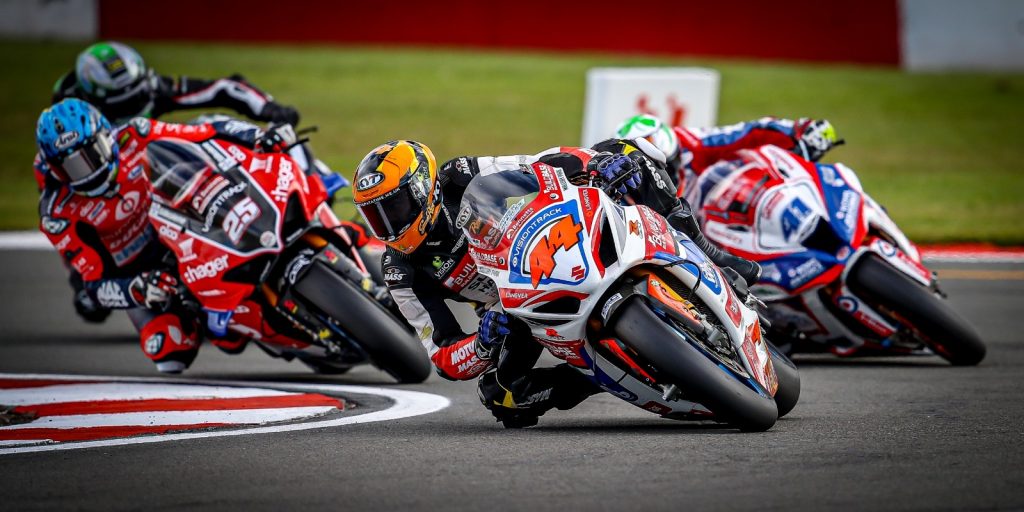
The big question is, what has changed to force the dynamic from riders being paid to riders paying?
“When the economy crashed, sponsorship was often the first thing companies stopped, so from there onwards lots of teams began to struggle, and they started to rely on riders to bring in the money, and once that happened it just stayed like that really. The teams budgets have always been low since then because they struggle to get the sponsorship in.”
With very little support schemes set up in the UK for British up-and-coming riders, this is resulting in a dying presence of British riders in world championship motorcycle racing. Where does this leave talent in British Supersport that may be looking to make the jump and show what they can do in the World championships that don’t have €250k to spare?
“The problem is the future generations, the kids of now that are racing, how do they come up and get through it? There will be other systems to start but using the example of World Supersport it just seems impossible.”
With experience in many different teams in a variety of championships such as World Supersport, Moto 2 Grand Prix, British Superbikes, endurance racing, and many more, Gino delves into changing team attitudes.
“I’ve been in the position where I’ve ran a team, myself and my dad owned half of the Moto2 team that I rode for in 2014 in the MotoGP championship, so I’ve seen it from both sides. I’ve seen where teams are lazy and they don’t look for their own sponsors and they rely on riders to bring their own money in, and I’ve seen teams that are successful and they’ve got their own marketing people get their own sponsors in.”
“It became extremely difficult for team to entice sponsors when the economy crashed and sponsors pulled out, and then other riders have been able to bring their own money in and as the years have gone on there’s always a new rider to pay the bill.”
Rea also spoke of what it was like as a British rider in the GP paddock, running a small team on a limited budget, against the giant Grand Prix teams.
“Running my own team in Moto2 was challenging, myself, my dad, and a couple of friends packed up the Mercedes Sprinter van and a big tent and basically ran the Moto2 bike out the back of a tent.”
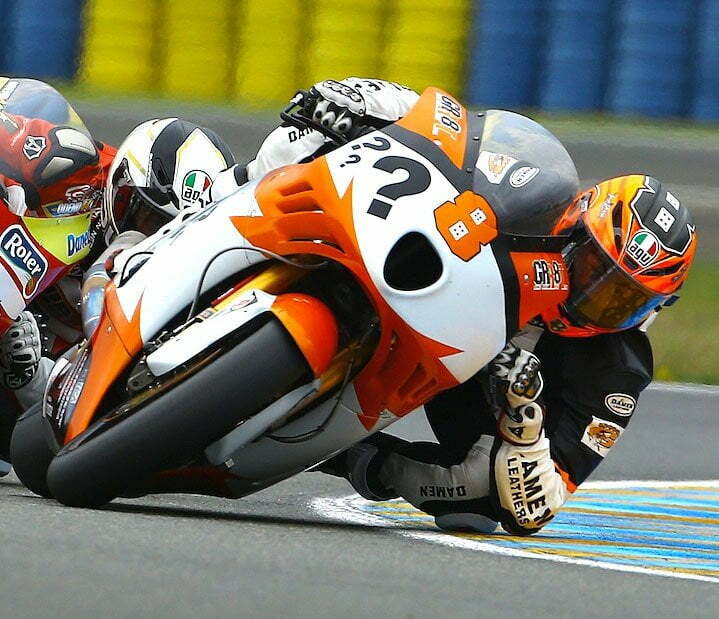
“We used to put the bike in back of the van which my fold down bunk bed was next to and we were literally sleeping next to the bike We’d then rock the bike out in the morning and Assen I think I was like 0.9 off pole setting the bike up myself with my friends spannering. I remember being like P2 in Le Mans on my own bike and we had question marks on the fairings to attract potential sponsors.”
As well as being a top class British Superbike rider, Gino is now using his experience to run his own team for up-and-coming riders in the British Superbike paddock, doing what he can to help British talent and give back to the sport. Rea has been running the Ready 4 Racing (R4R) Team for two seasons in the Supertock 600 class.
“I enjoy mentoring, working, coaching. A lot of my side work has been rider instruction, and rider coaching. I’ve done a lot of 1 on 1 coaching over the last 5 years and that basically evolved into rider coaching and mentoring within the team. I help them with everything from day to day life, what they do, their training, especially their training. I’ve always been big into my training and I’ve actually worked as a crossfit coach so I’ve had to learn my trade pretty well, and that crosses over into bike racing as well, along with nutrition and all of it really. Obviously the main thing is teaching them on track, riding on track with them, and developing their riding skills. It’s really interesting for me, especially from the rider coaching perspective because that’s what I really enjoy.”



![Private: [ID: 71rYi-xncgM] Youtube Automatic](https://motorradio-xijqc.projectbeta.co.uk/wp-content/uploads/2024/08/private-id-71ryi-xncgm-youtube-a-1-360x203.jpg)
![Private: [ID: 1SfHxvC8Doo] Youtube Automatic](https://motorradio-xijqc.projectbeta.co.uk/wp-content/uploads/2024/07/private-id-1sfhxvc8doo-youtube-a-1.jpg)
![Private: [ID: H6XRkf6kROQ] Youtube Automatic](https://motorradio-xijqc.projectbeta.co.uk/wp-content/uploads/2024/07/private-id-h6xrkf6kroq-youtube-a-1-360x203.jpg)
![Private: [ID: Kb6w-qAmKls] Youtube Automatic](https://motorradio-xijqc.projectbeta.co.uk/wp-content/uploads/2023/12/private-id-kb6w-qamkls-youtube-a-360x203.jpg)
![Private: [ID: CcpwYw20k3k] Youtube Automatic](https://motorradio-xijqc.projectbeta.co.uk/wp-content/uploads/2024/07/private-id-ccpwyw20k3k-youtube-a-360x203.jpg)

![[ID: x1SiRC5jhW4] Youtube Automatic](https://motorradio-xijqc.projectbeta.co.uk/wp-content/uploads/2022/04/id-x1sirc5jhw4-youtube-automatic-360x203.jpg)
![[ID: lMZ8lAeLubk] Youtube Automatic](https://motorradio-xijqc.projectbeta.co.uk/wp-content/uploads/2022/04/id-lmz8laelubk-youtube-automatic-360x203.jpg)
![[ID: GAYCcnqyFo4] Youtube Automatic](https://motorradio-xijqc.projectbeta.co.uk/wp-content/uploads/2022/04/id-gayccnqyfo4-youtube-automatic-360x203.jpg)
![[ID: Gg142H296QY] Youtube Automatic](https://motorradio-xijqc.projectbeta.co.uk/wp-content/uploads/2022/04/id-gg142h296qy-youtube-automatic-360x203.jpg)
![Private: [ID: nENdE7KupOA] Youtube Automatic](https://motorradio-xijqc.projectbeta.co.uk/wp-content/uploads/2023/03/private-id-nende7kupoa-youtube-a-236x133.jpg)
